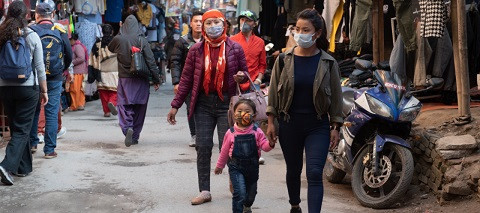
GCED Basic Search Form
Quick Search
Vous êtes ici
Nouvelles

The fifth edition of the UNESCO Regional Expert Consultation Series against Racism and Discriminations was held on 20 October 2020. An exchange of essential ideas, various perspectives and valuable insights were central to the discussion which highlighted the scope and magnitude of COVID-19’s adverse impact on socio-economic conditions and violence against these vulnerable groups within the Asia-Pacific region, home to 60% of the world’s population.
The consultation was opened by Ms Gabriela Ramos, Assistant Director-General for Social and Human Sciences of UNESCO. She highlighted the alarming increase of racism and discriminations around the world that have been accompanied by a wave of global tensions spanning across various sociopolitical and cultural areas. She also emphasized the imperative need to transform the existing narrative of inequality and discrimination in society by stating that “(t)hese excesses continue to confront us with the shared reality that things need to change.” Furthermore, she presented UNESCO’s response to this need through its various initiatives, including this consultation which highlights its “aspiration to advance the knowledge and understanding of the issue of racism and discrimination in order to take concerted, careful and collective action through participatory and holistic mechanisms.”
Ms Kristin Dadey, Chief of Mission of the International Organization for Migration in the Philippines, discussed how COVID-19 exacerbated racism and discriminations and heightened xenophobia, especially in sensationalizing the cause of the pandemic by attributing its origins to specific groups. Migrants were particularly vulnerable, experiencing violent attacks and stigmatization, among others. In terms of crisis response strategies, she reinforced the idea that inclusivity enabled a more effective response to addressing the issues arising from the COVID-19 crisis, while also citing the significant role of women leaders in successfully implementing and achieving this objective. She further emphasized the need to counter existing issues by promoting “the accurate narrative of migration,” also noting how “migrants have been at the forefront of the response.”
Dr Meghna Guhathakurta, Executive Director of Research Initiatives Bangladesh, emphasized the gap between “the haves and have nots” as the cause of a heightened form of racism in the context of commercialization of care services in light of the pandemic. Moreover, she presented the condition of double stigmatization in society and discussed the two trends that were also further unveiled during the pandemic. These trends correspond to access barriers experienced by racial groups and minorities in terms of health care facilities as well as heightened xenophobia against migrants. Gender and ethnic intersections were also tackled as contributing factors to increasing discrimination, especially in line with constriction of resources.
Professor Sohail Inayatullah, UNESCO Chairholder in Futures Studies, further explored the issue through a foresight framework. Considering how the COVID-19 crisis pushed such issues to the forefront, he referenced the idea of “making the invisible, visible.” He emphasized the importance of the “humanity first” mindset in line with the actions of individual agency. In his Causal Layered Analysis, he discussed the importance of depth and measurement in a framework of levels of analysis that pertained to the collection of data and metrics for country performance in inclusion, supportive systems and legislations, and cultural worldview choices towards inclusion, as well as the need to challenge and shift existing metaphors in society.
Ms Raushan Nauryzbayeva, Executive Director of the Development of Civil Society, cited how marginalized groups in Central Asia, including women, were the most adversely affected in terms of adequate assistance amid a crisis. She also presented how issues such as domestic violence and a decrease in income due to loss of employment were present especially in families and had a “negative impact on the good picture of the issue.” In this regard, she acknowledged the united efforts of NGOs in responding to the effects of the crisis. Meanwhile, in highlighting the existence of very tolerant state policies, she discussed the peaceful sustainability of the different groups – comprising more than 100 nationalities and ethnic groups living in Kazakhstan.
Professor Gyonggu Shin, Director of Gwangju International Center (Republic of Korea), presented the need to reframe education to focus more on collaboration over competition, while also highlighting the importance of youth involvement. In this regard, he also further explained the importance of progressive NGO groups in support of government policies, especially in fighting against hate speech. On a global level, he emphasized the need to promote international cooperation while also acknowledging that the existence of contrasting values between stakeholders also brought rise to criticism and conflict. He expressed that “conflict gives us dialogues,” contributing to productive engagement.
Themes such as participatory action and collaboration, education, accessibility and collection of data, responsive and inclusive governance, and addressing intersectionality, among many others emerged throughout the discussion and served as a framework for the emerging recommendations.
Organized by UNESCO, this Series aims to unpack the societal challenges of the COVID-19 pandemic related to racism and discriminations and seeks to facilitate the necessary deep reflection on what direction the international community should take amid the renewed emergence of racist agendas.
This edition was moderated by Ms Sue Vize, UNESCO Regional Adviser for Social and Human Sciences in Asia and the Pacific. Other editions were previously held, focusing on Africa, North America, Europe, and Latin America and the Caribbean.
Links to the previous editions:
URL:
